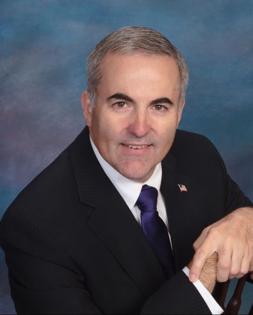COUNTERPOINT: America needs public-sector unions
Published in Op Eds
Public-sector unions have long supported American workers, championing fair wages, reasonable hours and safe working conditions.
While recent challenges — like Utah’s repeal of collective bargaining rights for government employees — may seem daunting, they also present an opportunity for us to unite, educate the public and strengthen our resolve.
Right-to-work (RTW) laws, despite their misleading name, actually allow employees to benefit from union negotiations and protections without having to pay union dues. Simply put, it results in quintessential freeloading.
Supporters claim these laws attract businesses and boost economic growth. In reality, these laws do quite the opposite. West Virginia is a prime example. After passing RTW, the state saw no influx of businesses and no economic boom. Even Gov. Jim Justice admitted, “We ran to the windows looking to see all the people that were going to come — and they didn’t come.”
RTW laws don’t bring prosperity — they drive down wages. Research from the Economic Policy Institute shows that workers in RTW states earn 3.1 percent less than their counterparts in union-friendly states, even when adjusting for the cost of living.
Lower wages hurt working people and weaken local economies, leaving American communities with fewer resources and less stability. This isn’t just a statistic; it’s a harsh reality that affects real people, their families and their communities.
Public-sector unions don’t just fight for their members; they fight for all of us. Teachers’ unions advocate for smaller class sizes and better funding for schools. Firefighter unions push for life-saving safety standards. Postal worker unions and trade unions have historically provided stable, middle-class jobs, helping build generational wealth. Their work benefits us all. It is patriotic work that creates a sense of shared responsibility and unity, and we should be grateful for their efforts. Together, we build a stronger America.
When unions are strong, public services improve. When workers lose their voice, wages decline, and job security vanishes when unions are weak. In states where lawmakers dismantle collective bargaining, teachers leave the profession, first responders face dangerous staffing shortages, and critical public services deteriorate. That’s bad not just for workers — it’s terrible for everyone.
We look to the leadership of New Hampshire Gov. Kelly Ayotte and remember the wise words from her recent budget address: “One of my critical responsibilities as governor is to provide for those who depend on the state of New Hampshire for their daily needs. Our first step in shaping this budget was to protect the programs that those who are most in need depend on.”
Despite decades of anti-union rhetoric from corporate-backed politicians, even some conservatives are beginning to see the value of organized labor. In West Virginia, Treasurer Riley Moore secured the backing of 15 trade unions in his successful campaign to become a member of the U.S. House of Representatives. He directly acknowledged that the concerns of unions align with those of many working-class Republicans.
At the federal level, the Protecting the Right to Organize (PRO) Act, a comprehensive labor rights bill, would restore workers’ rights to unionize and bargain collectively, reversing the damage done to communities by RTW laws. Although some political leaders have hesitated to support it, the push for stronger labor laws signals a shift in the national conversation.
In a strong demonstration of the growing bipartisan support for unions, President Donald Trump’s secretary of labor, Lori Chavez-DeRemer, received 67 votes in the U.S. Senate when she was confirmed. Her vote included 17 Democrats. It is noteworthy that Chavez-DeRemer was a co-sponsor of the PRO Act when she served in Congress.
If states like New Hampshire want to attract businesses and create economic growth, they should focus on real issues: affordable housing, high energy costs, and better vocational training. Slashing union rights will not solve these problems, but investing in workers and housing will.
Strong public-sector unions help build a thriving middle class, stabilize local economies, and protect the services we all rely on. Instead of undermining them, we should be fighting to strengthen them — for the sake of workers, families and communities across our great nation.
_____
ABOUT THE WRITER
Richard Gulla is the president of the New Hampshire State Employees’ Association, SEIU, Local 1984. He wrote this for InsideSources.com.
_____
©2025 Tribune Content Agency, LLC




























































Comments